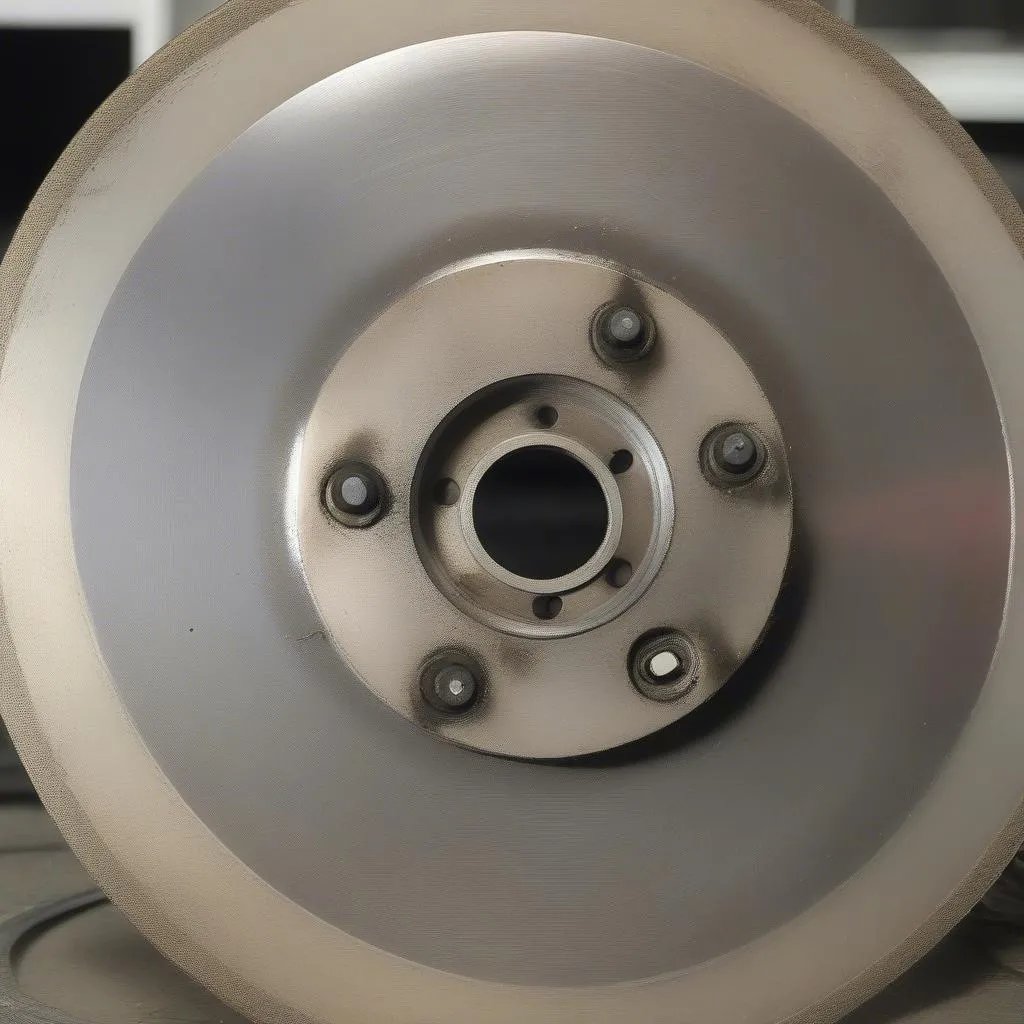Have you ever been driving your car, maybe cruising down a California highway in your Ford Focus, only to feel a strange shaking when you slow down for traffic? It’s a common issue, and it can be pretty unsettling. Don’t worry, though! Understanding why your car shakes at low speeds is the first step to getting it fixed and back to a smooth ride.
What Does “Car Shakes at Low Speeds” Even Mean?
This seemingly simple phrase can mean different things to different people. For a seasoned mechanic like myself, it might bring to mind warped brake rotors or a failing CV joint. But for someone who isn’t a car expert, it might just be an unnerving vibration they feel through the steering wheel when they’re stuck in traffic on their way to work in their Toyota Camry.
From a technical standpoint, car shaking, particularly at low speeds, often points to an imbalance somewhere in the rotating components of your vehicle. Think of your car tires like a set of poorly balanced washing machine – when it hits the spin cycle, that imbalance makes itself known!
Now, you might be thinking, “Why does it only happen at low speeds?” Good question! Often, the shaking is present at higher speeds too, but the force of the wheels spinning faster masks the issue. As you slow down, the imbalance becomes more noticeable.
So, Why Does My Car Shake at Low Speeds?
There’s no single answer to this question, but several common culprits often rear their ugly heads in my shop. Here’s a breakdown:
1. Tire Troubles:
Your tires are the most common reason for a car shaking at low speeds.
- Unbalanced Tires: Remember that washing machine analogy? Unbalanced tires are the most likely culprit, especially if the shaking starts after a recent tire change.
- Misaligned Wheels: Hitting a pothole on a busy Chicago street or simply driving on worn suspension components can knock your wheels out of alignment. This can cause uneven tire wear and that dreaded shaking sensation.
- Damaged Tires: A bulge in the sidewall of your tire or a flat spot from hard braking can throw off the balance and lead to vibrations.
- Worn Tires: Everything wears out eventually, and your tires are no exception. Worn tires can’t grip the road properly, leading to vibrations, especially at lower speeds.
2. Brake Issues:
- Warped Brake Rotors: If you feel the shaking through the steering wheel, especially when braking, warped brake rotors might be the culprit. This often happens from excessive heat buildup, like riding your brakes down a steep mountain road in your Audi Q5.
3. Drivetrain Problems:
- Worn CV Joints: A clicking sound when turning, accompanied by vibration, especially when accelerating at low speeds, could signal worn-out CV joints.
- Damaged Axles: A bent or damaged axle can throw off the balance of your wheels, leading to vibrations. This is more common after an accident.
 Warped Brake Rotor
Warped Brake Rotor
What Should You Do if Your Car Shakes at Low Speeds?
Don’t ignore it! That shaking is your car trying to tell you something is wrong. Continuing to drive with a shaking car can worsen the problem and lead to more expensive repairs down the line.
Here’s what I recommend:
- Inspect your tires: Look for any visible signs of damage, uneven wear, or bulges.
- Check Your Wheel Alignment: You can do a basic check at home, but it’s best to get it professionally checked.
- Visit a Mechanic: If you suspect the problem is beyond your tires, take your car to a trusted mechanic, preferably one specializing in your car’s make and model, like a specialist for your Mercedes-Benz E-Class. They have the tools and expertise to diagnose the problem accurately and recommend the right course of action.
FAQs About Car Shaking at Low Speeds:
Q: Can a bad tire cause my car to shake at all speeds?
A: Absolutely! While more noticeable at low speeds, a bad tire can cause vibrations at any speed. The severity of the shaking often increases with speed.
Q: Is it safe to drive with my car shaking?
A: As a rule of thumb, it’s always best to err on the side of caution. Driving with a shaking car can be dangerous, especially at higher speeds. The shaking could be a sign of a serious problem that could lead to an accident.
Q: How much does it cost to fix a car that shakes at low speeds?
A: The cost of repairs depends on the underlying cause. A simple tire balancing might only set you back a few bucks, while replacing a damaged axle could cost significantly more. It’s always a good idea to get a quote from your mechanic before authorizing any repairs.
Still Have Questions?
Need help with your car’s shaking or any other automotive issue? Don’t hesitate to reach out! You can contact me, your friendly neighborhood car expert, on WhatsApp at +84767531508. I’m always happy to help diagnose car problems and offer advice on the best course of action.
Keep Exploring:
Want to learn more about common car problems and how to fix them? Check out these other informative articles on our website:
Remember, a little knowledge goes a long way when it comes to keeping your car running smoothly. Safe travels!